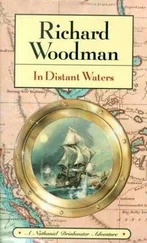From where he is sitting Gabriel is able to peer through one of the small round windows, but all he can see is blackness. The plane quickly levels out and the noise of the engines achieves a monotonous roar. Soon Gabriel begins to feel cold. He steals warmth from his uncle’s body, and he tries desperately to fall asleep, but each time he closes his eyes he feels compelled to open them again, for he knows that in order to stay warm he must concentrate. He notices a man to the side of him with one leg and an unwashed blue rag covering his stump. The man looks in pain, and his eyes are brimming with tears, but Gabriel looks away and imagines this plane cutting neatly through the clouds with the bush carpet, and then the sand carpet, and then the water carpet way down beneath them.
The loud jolt of the plane hitting the tarmac wakes Gabriel up, and he tumbles into his uncle’s lap. The runway lights race by, briefly illuminating the interior of the plane, and as Gabriel regains his balance it is clear to him that some of the women and men, including his uncle, appear to be sick. He gently pushes the older man, who speaks without opening his eyes.
“I’m fine, Gabriel. Everything is just fine.” But his uncle sounds weak.
Gabriel follows a frail Joshua down the steps and into the warm air. It is night time, and in the distance it is possible to see the bright lights of a great city. Once they reach the tarmac Gabriel is able to see that they are still some distance from the large terminal building, and should they be expected to walk, then he is sure that this task will prove too much for his uncle. An unshaven white man hands them a single paper cup of water, and the man is careful to make sure that they each receive only one cup. They gulp down their water and then hold their cups in their hands as though unsure of what to do next. Joshua’s group of a dozen men, who two days earlier began their journey under a tarpaulin in the back of a truck, stand together. As though obeying some unheard order, the other voyagers have reclaimed their natural groups, and they all stand idly in the shadow of the huge plane that has carried them out of Africa. Dust begins to rise, and Gabriel watches anxiously as a fleet of buses races towards them, but he remains unsure whether the buses are hostile or friendly.
Once the buses reach the terminal building the new immigrants are all ushered through a narrow door, on the other side of which are stationed men with guns who look upon them without respect. The air inside this building is stifling. Joshua leaves his dozen men and approaches a uniformed white man who appears to be in charge of the whole operation. Gabriel eyes his uncle closely and tries to guess what is happening, but it is only when Joshua returns, and gathers his men around him, that it becomes clear what the next stage will entail. Joshua holds a hand up to his mouth, and tells them that they are to be transferred to a room where they will be able to wash themselves, and then the same buses will take them to a place where they will make a short journey across some water in a boat. After this they will be in Europe proper, and then they will board a train to France and then on to England. Joshua reminds them that once they have crossed the water they are free to strike out on their own if they wish. Joshua pauses, but nobody speaks, and so he says that they must hurry because they must cross the water and board the train before the sun rises.
Gabriel barely has time to step out of his clothing and pile it onto a bench before a white man is shouting at him, and pushing and prodding his naked body into a powerful stream of icy water. Some men around Gabriel scream and rush to reclaim their clothes, while most seem grateful for the water and try to drink as much as possible. Gabriel runs quickly through the water and pulls on his clothes, despite the fact that his body is still dripping wet. As they pass through the city Gabriel looks out of the window and can see that the buildings are tall, but most of them are boarded up on the ground floor. On the higher floors, windows are open and curtains flutter in the breeze, but there is nobody to be seen. However, it is the neon glare from petrol stations, the signs in garish reds and greens, which catch Gabriel’s attention. The men stare at the lights, which seem to suggest festivity, but one by one they all tire and adopt the fatigued position of lowering their heads onto the back of the seat in front of them or into their sweating, cupped palms.
Gabriel had imagined that the bus journey would be a short one, but they seem to have been trundling into the night for ever. Through the window he can see that they are now travelling along narrow country roads, with only the occasional house on either side. An exhausted Joshua leans against his nephew, and his head bobs first one way and then the next, causing him to roll from side to side like a puppet. Although it makes him feel guilty to notice, Gabriel can smell Joshua’s unwashed body and he turns away from his poor uncle. As he does so the noise of the raucous engine begins to change, and the bus slows down and then pulls to a halt. Gabriel shakes Joshua, who wakes up with a start. He seems embarrassed that he has fallen asleep.
“Is this where we take the boat?”
His uncle rubs his eyes and stands up without answering Gabriel. He walks to the front of the bus to speak with the driver.
Gabriel continues to stare out of the window. He can see that there is a small pier and moored against the pier there is a boat. Far across the water he sees a low line of lights, which suggests that this is a very wide river. One by one his fellow travellers wake up, and then stretch, and then they too stare out of the window at the water, and at the land in the far distance. Gabriel turns his attention back to his uncle, who is still talking with the driver of the bus. The conversation is becoming increasingly loud, and then Joshua gesticulates angrily with both hands and walks back down the aisle. Once again he takes up his seat next to Gabriel, and then he turns to his nephew.
“We have to wait for other buses.”
Gabriel looks puzzled. “How long do we wait?”
“This is the problem,” says Joshua. “We do not know.”
“And what if the other buses do not arrive?”
Joshua ignores his nephew’s question.
Gabriel huddles next to his uncle in the boat as the cold wind whips off the water and stings their faces. He can see that the boat’s cumbersome engine is tracing a dull line in the moonlit water, a line that quickly disappears as the shallow swell erases all evidence of it. The heavily laden boat inches along with a laboured bearing, and Gabriel listens to the muted whisper of the water talking to itself. Out here on this night river that is full of the reflection of stars, the stiffening wind threatens to become spiteful and Gabriel feels a series of shivers course through his slender body. Above them the sky is beginning to relinquish its black pallor, but as yet there is no sign of dawn. Gabriel gazes ahead to the shoreline where the ribbon of lights moves ever closer, and then he hears the boat’s engines being cut and he feels the vessel beginning to drift. A barefoot boy jumps up on the prow of the boat and tosses a rope to some scruffy-looking men on the quayside whose cigarettes glow especially bright in the twilight. And then the boy disembarks. Gabriel’s eyes hurt, for his pupils feel as if they have shrunk so that they are now too small to hold the imminent daylight. However, as he looks around a sense of relief warms his empty stomach. This is Europe. Tired, hungry and disorientated, the weary migrants stumble ashore.
Joshua stands in the doorway to their cramped train compartment and explains to them all that under no circumstances are the plastic window screens to be raised. He then requests that Gabriel join him in the corridor. Gabriel is worried, for he is sure that he will now lose his coveted seat by the window, but Joshua waits patiently for his nephew to stand. Once they are in the corridor, Gabriel can see that stationed at either end of the carriage there is a uniformed man with a gun.
Читать дальше











![Карен Кингсбери - A Distant Shore [calibre]](/books/384306/karen-kingsberi-a-distant-shore-calibre-thumb.webp)
